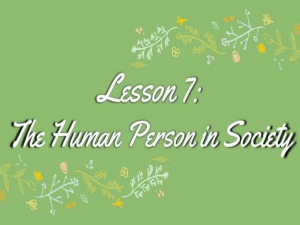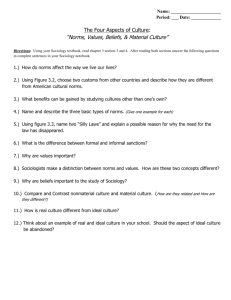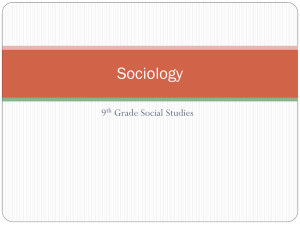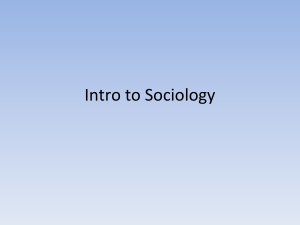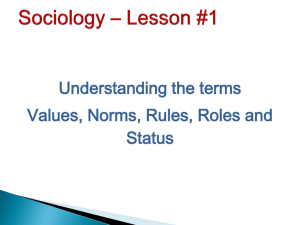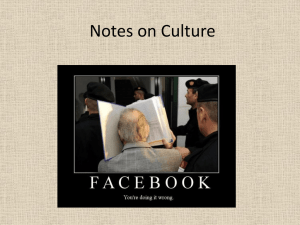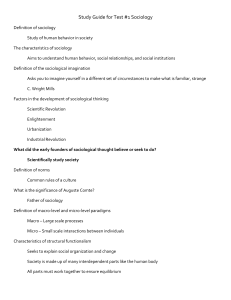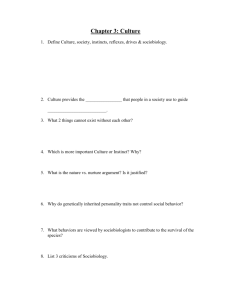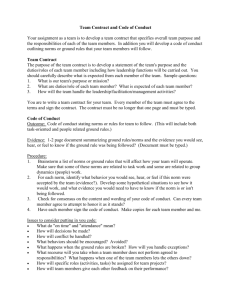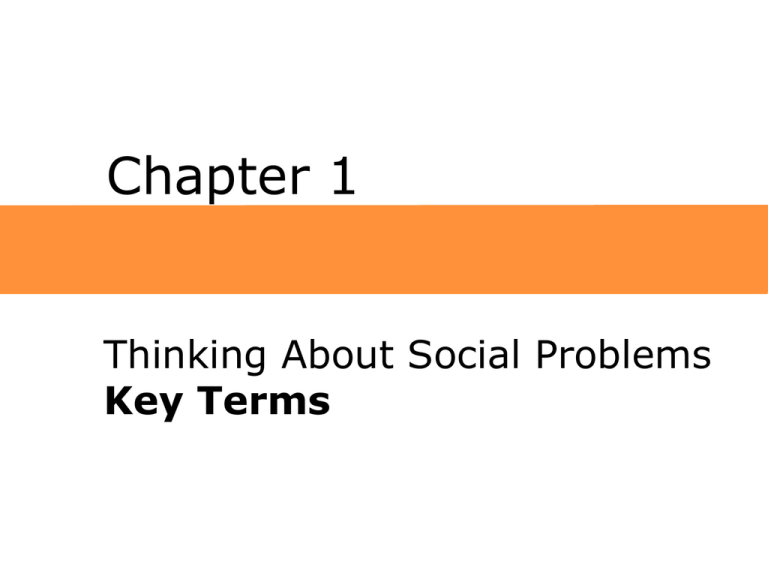
Chapter 1
Thinking About Social Problems
Key Terms
objective element
Refers to the existence of a social
condition.
subjective element
The belief that a particular social
condition is harmful to society.
social problem
A social condition that a segment
of society views as harmful to
members of society and in need of
remedy.
institution
Established and enduring patterns
of social relationships (family,
religion, politics, economics, and
education).
social group
Two or more people who have a
common identity, interact, and
form a social relationship.
primary group
Small, intimate, and informal
groups.
secondary group
Large or small, task-oriented,
impersonal, and formal groups.
status
Positions within a social group.
ascribed status
Assigned on the basis of factors
over which the individual has no
control (e.g. sex, race).
achieved status
Assigned on the basis of some
characteristic or behavior over
which the individual has some
control (e.g. parent, college
graduate).
master status
Status that is considered the most
significant in a person’s social
identity.
roles
The set of rights, obligations, and
expectations associated with a
status.
beliefs
Definitions and explanations about
what is assumed to be true.
values
Social agreements about what is
considered good and bad, right
and wrong, desirable and
undesirable.
norms
Socially defined rules of behavior.
folkways
The customs and manners of
society.
laws
Formalized norms that are backed
by a political authority.
mores
Norms that have a moral basis.
sanctions
Consequences for conforming to or
violating norms.
symbol
Language, gestures, and objects
whose meaning is commonly
understood by the members of a
society.
sociological imagination
The ability to see the connections
between our personal lives and the
social world in which we live.
latent function
Consequences that are unintended
and often hidden.
manifest function
Intended and recognized conflict
perspective.
anomie
Norms that are weak, conflicting,
or unclear.
alienation
Powerlessness and meaningless in
people’s lives.
macro sociology
Looks at the "big picture" of
society and suggests how social
problems are affected at the
institutional level.
micro sociology
Concerned with the social
psychological dynamics of
individuals interacting in small
groups.
labeling theory
If a social condition or group is
viewed as problematic if it is
labeled as such.
variable
Any measurable event,
characteristic, or property that
varies or is subject to change.
Researchers must operationally
define the variables they study.
operational definition
Specifies how a variable is to be
measured.
hypothesis
A prediction or educated guess
about how one variable relates to
another variable.
dependent variable
The variable the researcher wants
to explain.
independent variable
The variable that is expected to
explain change in the dependent
variable.
experiment
Involve manipulating an
independent variable to determine
how it affects the dependent
variable.
field research
Involves observing and studying
social behavior in settings in which
it occurs naturally.
survey research
Interviews, questionnaires, and talking
computers that elicit information from
respondents through questions
(important to have representative
sample).
sample
A portion of the population, selected to
be representative so the information
from the sample can be generalized to a
larger population.


